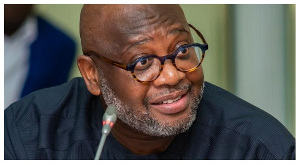Investigations by the Ghana Bar Operators Association (GHABOA) have shown that 73 percent of bar operators in the country do not have all the necessary requirements to operate their facilities, while 20 percent do not have any permit from any of the regulatory authorities.
The investigation, which involved 949 operators across the country, revealed that those who did not have any permit at all did not know that they had to acquire one for their operations.
According to GHABOA, the country’s current alcoholic policy required that for one to operate a drinking bar, one had to acquire permits from the Environmental Protection Agency (EPA), Ghana Tourists Authority (GTA), the Ghana National Fire Service (GNFS), the Environmental Health Authorities and the district assemblies.
The national secretary of GHABOA, Stephen Mensah, in a press release recently, said most often, officials of district assemblies went to owners of drinking bar operators to demand ground rent and other rates from such owners without enquiring if the owners of the bar had acquired the required permits to operate.
That, according to him, made drinking bar operators believe that once they had acquired a licence from district assemblies, they had the right to operate.
According to Mr Mensah, currently, there was an elaborate draft policy on the operations of drinking bars which was expected to be laid before Parliament soon. Additionally, there would be a task force comprising all the licensing agents and GHABOA to go round and inspect various drinking bars in the country.
GHABOA has therefore appealed to drinking bar operators across the country to regularise their operations by acquiring all the necessary documents for their operations before the passage of the new bill.
“We also want to call on the government to reduce the number of agencies and organisations involved in the licensing of drinking bars to motivate operators to easily comply with the law for the state to benefit,” Mr. Mensah said.**
Regional News of Thursday, 19 April 2012
Source: Daily Guide
















